We stayed in a conservative area of Istanbul. It tested the limits of my tolerance.
I don’t regret our time there. But those waters? This particular fish doesn’t want to swim in them again.
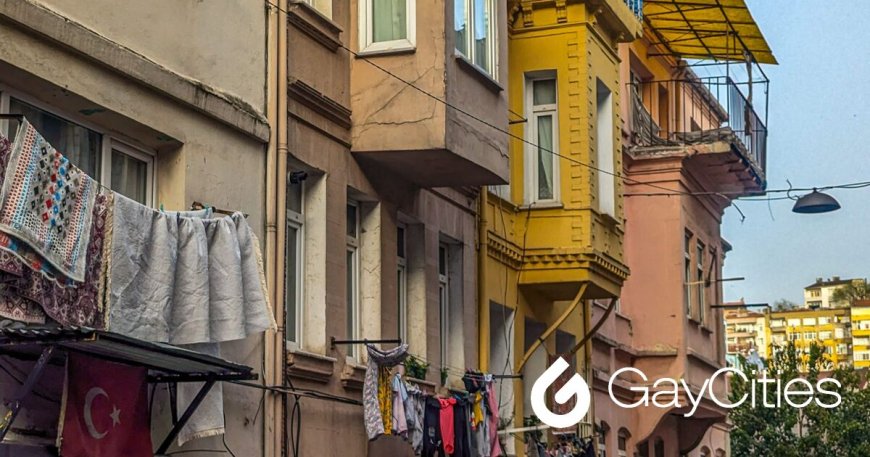
Brent Hartinger and Michael Jensen are a gay “digital nomad” couple — two men who travel the world continuously, living in different countries for anywhere from one to three months at a time. Subscribe to their newsletter at BrentAndMichaelAreGoingPlaces.com.
Last April, my husband Brent and I spent a month in Balat, a small neighborhood in Istanbul’s sprawling Fatih district. This was the heart of ancient Constantinople.
Balat is now a popular tourist attraction, well-known for its steep hills and famous pastel-colored buildings. Most tourists stick to the twisty warren of streets close to the Golden Horn, packed with restaurants, quirky coffee shops, and stores selling antiques or Turkish Delight.
It’s a great place to eat and explore.
Pack your bags, we’re going on an adventure
Subscribe to our weekly newsletter for the best LGBTQ+ travel guides, stories, and more.
Subscribe to our Newsletter today
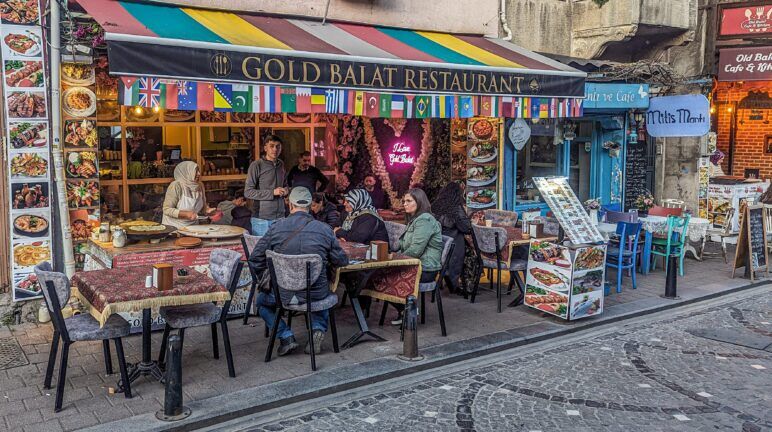
But Brent and I lived higher up the hill, where tourists rarely venture. This part of Balat is more typical of the greater Fatih area. It’s poorer and also one of the most conservative neighborhoods in Istanbul.
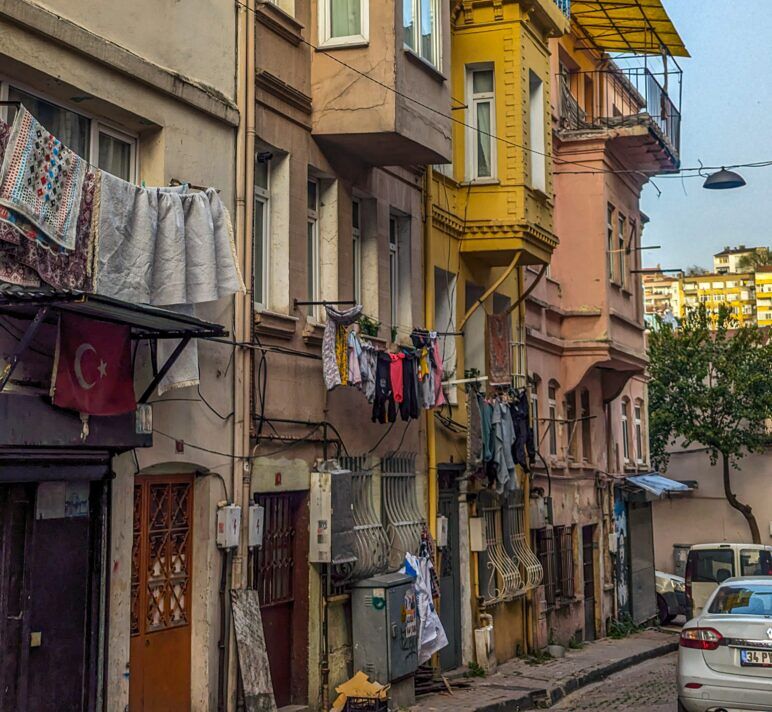
One of my chores as Brent and I travel the world is shopping for our groceries.
And one afternoon in early April, I found myself inside a local fruit and vegetable shop.
The narrow aisles were filled with stacks of bright red tomatoes, purple pomegranates, and cheerful lemons, as well as darker piles of potatoes, dried mushrooms, and leafy greens.
All around me, I saw women in black abayas with small children in tow. They smelled the fruits and squeezed the vegetables, carefully choosing ingredients for the meals they would soon prepare for their families.
I was one of the few men and the only Westerner.
Related
Where should you stay in Istanbul?
No matter where you stay in Istanbul, we can guarantee you’ll love it.
At 6’1”, I towered over everyone else. It didn’t help that I was so pasty, a bit sweaty, and not a little confused about how to weigh and pay for my purchases.
I was a stranger in a strange land.
But I didn’t mind in the least.
In fact, I like being a fish out of water. And here in Fatih, I was surrounded by people who at least looked entirely unlike me: mostly traditionally dressed Muslim women. I probably even had a little smile on my face, loving everything about the experience.
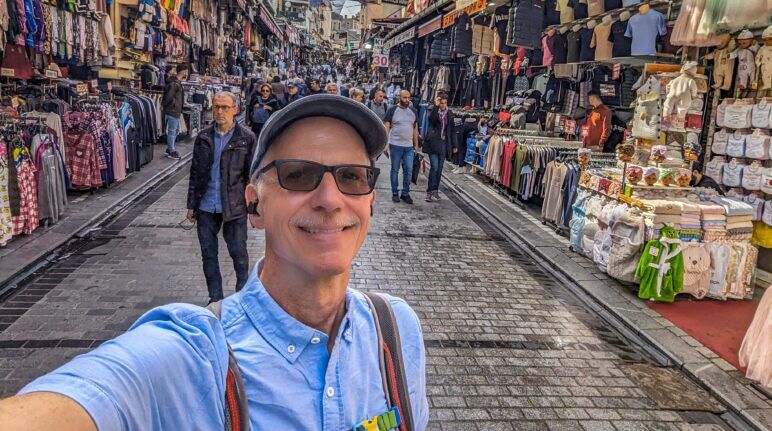
Our first week in Balat flew by. But we’d come to Istanbul so Brent could have foot surgery, which took place the following week. During that time, we were occupied by doctors’ visits, the surgery, and Brent’s fairly painful recovery.
I nursed him as much as he needed me.
But I still had to do the shopping — and I also had other time to myself, especially in the early mornings.
By the third week, Brent was starting to be back on his feet — at least with a cane, if only in the apartment — so I resumed my explorations of Balat and the rest of Fatih.
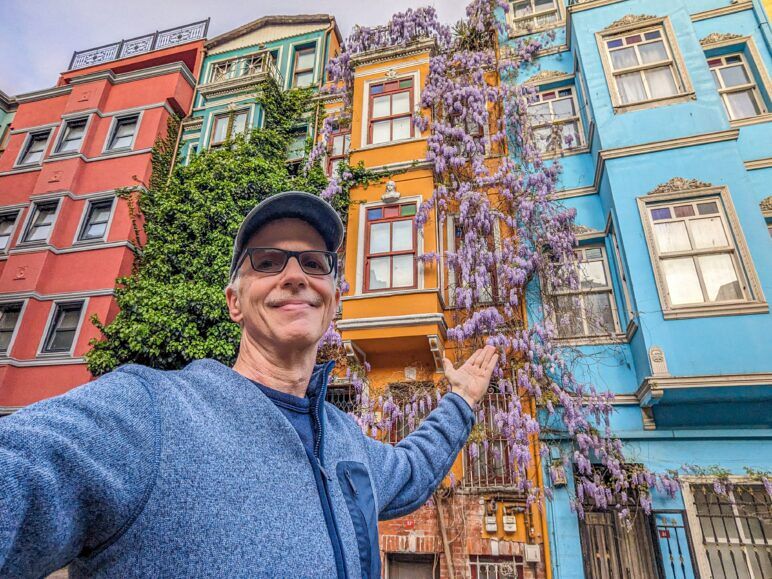
But now my feelings began to change.
As we travel the world, I tend to be very friendly. I smile a lot, and I’m pretty quick to speak to people when an opportunity presents itself.
But that rarely happened in Fatih. The women ignored me, acting like I was invisible. Meanwhile, the men were aloof, glancing at me and looking away again.
I’ve always tried to be mindful of local mores, and I knew this wasn’t about me — it’s just what the culture is like there. So I became much less expressive — except with the older man from whom I bought most of our produce. He was always very friendly.

There was also the woman from whom we bought our water. She was still reserved, but at least we bonded over her cat.
But these were the exceptions. I felt isolated everywhere else, and it was unsettling and a little lonely. It’s one thing to be a fish out of water, but here I felt like I was in a downright desert.
I’d been dressed modestly all along — always in long pants, like the locals. But now I noticed that almost everyone — male and female alike — was dressed in black, gray, or brown. Occasionally, a woman’s headscarf might be a soft blue shade or muted orange.
But it was mostly a steady flow of drabness.
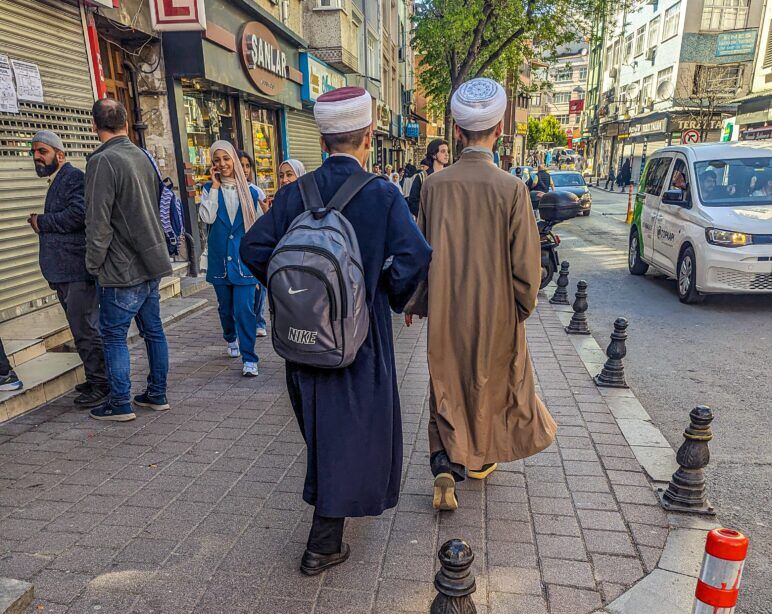
Elsewhere in Istanbul, Muslim women often wear lovely, brightly colored clothing — some even designer fashions. But not in Fatih.
Finally, it was our last week there, but I was still noticing things.
The local women didn’t ignore only me — they ignored all the men. Men and women rarely interacted in public, except when someone was buying something.
Also, while some men wore robes, most wore more traditional Western clothing: trousers and button-down shirts. Meanwhile, the women were almost always covered head to toe in abayas. The woman in the apartment building across from ours wore hers even when hanging laundry on her balcony.
I also saw women in full burqas, wearing gloves to cover their hands and masks over their faces.
This all troubled me. It looked uncomfortable, especially on hot days. Worse, it felt like the women were being erased in some fundamental way.
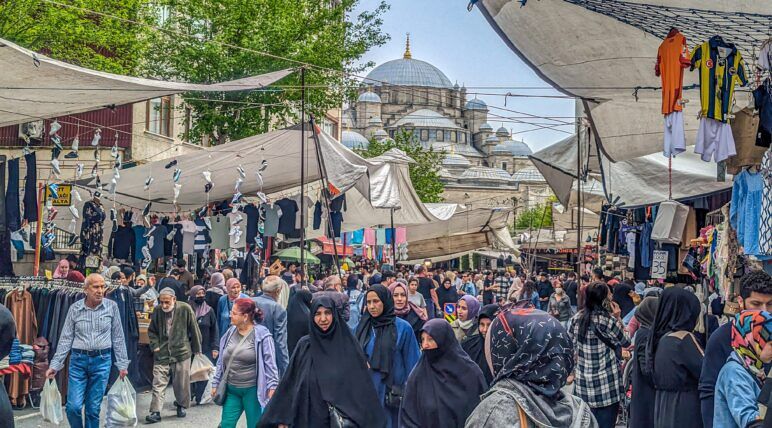
I was a guest in this place, and since I hadn’t been able to interact with or befriend any of our neighbors, I had no idea how the women I saw felt about this — if they gave it any thought at all.
For all I knew, they were perfectly happy. There was undoubtedly much I didn’t understand about these people and their way of life.
And frankly, it was none of my business.

Still, I noticed it.
Then, one afternoon, I walked to a nearby mosque. I loved visiting Turkey’s mosques — the thin minarets piercing the sky, the gleaming domes seemingly piled one on top of the other, those gorgeous light-filled interiors with their intricate geometric designs painted on the walls.
A small, dark-haired girl in the courtyard caught my eye on this particular day.
She was dressed in pretty green and blue clothes, a bright pink backpack slung across her shoulders.
The girl played with other children, both boys and girls. She raced up and down the stairs, her laughter filling the courtyard.
Related
A Turkish breakfast is perfect for size queens
Clearly, the Turks don’t believe in the principle of “less is more.”
In Fatih, most girls under twelve looked like children in any Western country — with Frozen backpacks, no less.
Meanwhile, the girl’s mother stood nearby, watchful but motionless, clad in the traditional black abaya.
How would this little girl be dressed in a few years? How would she be acting? Like her mother?
Again, this was and is none of my business. But I’m human and notice and wonder about things.
And I have reactions.
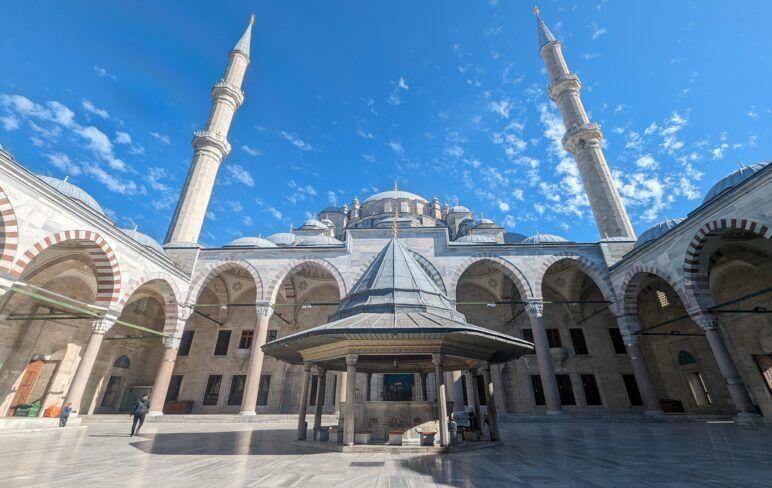
That was when I realized something that had been brewing inside me: I no longer felt happy walking the streets of Fatih.
The lack of human connection and the drab colors had worn me down, making me feel disconnected. The fact that the little girl was dressed so colorfully somehow made it worse.
I know it’s not for me to pass judgment on these people or their culture — especially when I’m a guest in their country.
And I definitely make no judgments on Islam because there is no one Islam. I’ve seen it practiced in very different ways all over the world. Every religion is complicated, with good and bad, light and dark — just like every person.
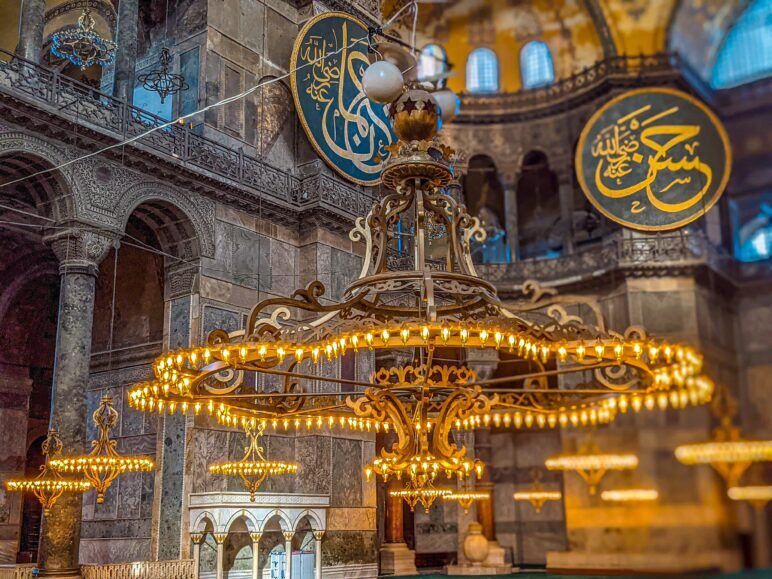
And if I’ve learned one thing during our seven years of travel, it’s that traditional cultures often have a much stronger sense of community than the U.S.
During our month in Istanbul, some people showed me great kindness. I bought water at a shop near the hospital where Brent had surgery, and when the owner realized I was visiting someone at the hospital, he insisted on making me tea and told me, “I hope everything is okay.”
But Balat and Fatih were different.
I tried hard to accept this more conservative version of Islam, and I do tolerate it. But I’m not sure I can do more than that. I can’t celebrate or embrace it.
After four weeks, I was ready to leave.
I don’t regret our month there. It allowed me to experience a place unlike anywhere else I’ve ever lived — and a fairly fascinating one.
But those waters? This particular fish doesn’t want to swim in them again.

 Mark
Mark 





